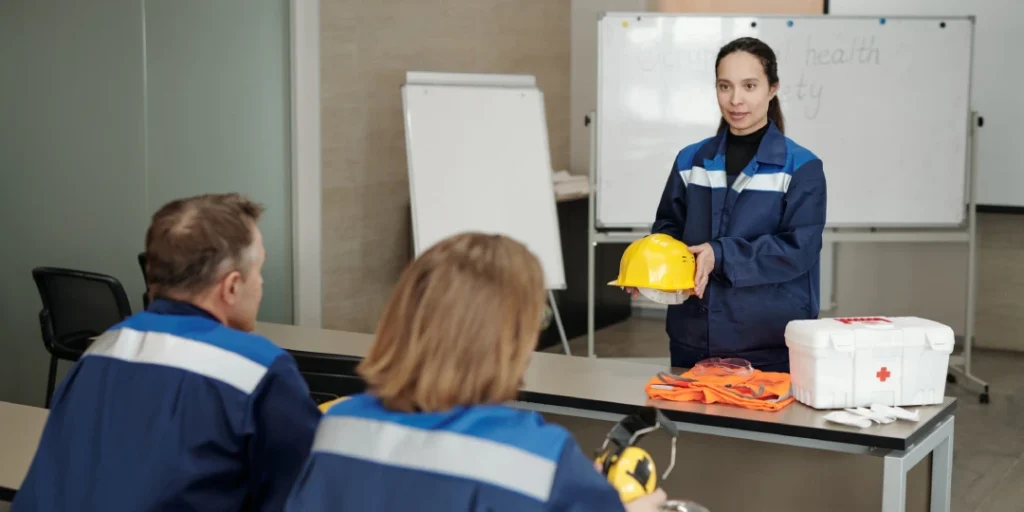Introduction: Safety Readiness Beyond Compliance
Safety readiness is a commitment that Nashville businesses must embrace, not just to meet guidelines but to protect the people who keep operations moving. At Fortier Loss Control, the focus on First Aid CPR training goes beyond passing a test or checking off a compliance requirement. It’s about building a workforce that knows how to respond quickly and effectively during emergencies, whether it’s a sudden cardiac arrest on a warehouse floor or a severe allergic reaction in a café. Fortier Loss Control understands that emergencies strike without warning, and a prepared team can mean the difference between life and death.
Equipping teams with First Aid CPR skills also helps businesses reduce fear and hesitation during critical moments. Employees trained by Fortier Loss Control learn to assess emergencies confidently, initiate chest compressions correctly, and manage bleeding or choking situations while awaiting professional medical help. This reduces the likelihood of preventable fatalities and severe complications from delayed responses, reinforcing the company’s culture of care and readiness. Preparedness becomes a part of daily operations rather than an afterthought pulled out during yearly reviews.
Moreover, prioritizing First Aid CPR training at Fortier Loss Control fosters a sense of value and trust within teams. Employees see firsthand that their employer is investing in their safety and equipping them with skills that extend beyond the workplace. Families, coworkers, and the broader Nashville community benefit when more individuals are capable of delivering lifesaving interventions during emergencies. Fortier Loss Control turns compliance obligations into meaningful opportunities for empowerment, shaping safer workplaces across the city.
The Nashville Landscape: Unique Workplace Risks
Nashville’s diverse industries—from live entertainment venues and hospitality spaces to bustling construction zones—bring a variety of unique risks that require targeted First Aid CPR training. Heat exhaustion on roofing sites, sudden cardiac arrests during high-stress events downtown, and machinery-related injuries in local manufacturing plants all represent realities for Nashville’s workforce. Fortier Loss Control tailors its First Aid CPR training to address these specific threats, ensuring that Nashville teams are prepared for emergencies they are most likely to encounter in their environments.
Many workplaces underestimate the rapid escalation of emergencies when staff lack the confidence and training to respond appropriately. A minor kitchen burn can turn into a severe injury if not treated immediately, and cardiac arrest outcomes are largely determined by the first few minutes of response. Fortier Loss Control integrates these practical realities into every First Aid CPR training program, emphasizing the urgency and specific approaches required within high-risk sectors in Nashville.
By working closely with Nashville businesses, Fortier Loss Control helps companies identify common hazards within their operations, from congested event spaces requiring crowd management for medical incidents to noisy construction sites where communication during emergencies is critical. The First Aid CPR programs are then adapted to these findings, giving teams actionable plans and practical skill sets that align with their daily work environments.
Why Standard CPR Training Falls Short
Standard CPR classes often leave gaps that become evident in the moment of crisis. Many traditional programs use generic approaches without adapting to workplace realities, resulting in employees who know the theory but freeze under pressure. Fortier Loss Control addresses this shortcoming by embedding context into First Aid CPR training, ensuring Nashville teams know not just how to perform CPR but when, where, and why it matters within the unique challenges of their workplace.
While traditional CPR certifications check compliance boxes, they do not account for the high-stress nature of workplace emergencies. Employees might pass a written test yet lack the confidence to intervene effectively when a coworker collapses. Fortier Loss Control’s First Aid CPR training integrates scenario-based simulations that replicate workplace emergencies, allowing teams to practice under realistic conditions. This type of immersive learning helps teams react instinctively when emergencies strike, reducing the time it takes to initiate chest compressions and other lifesaving measures.
Additionally, standard CPR training often fails to address the broader framework of First Aid integration during emergencies. Knowing CPR alone is insufficient if an employee does not know how to manage the scene, communicate with 911 effectively, or handle multiple injuries in a chaotic environment. Fortier Loss Control’s First Aid CPR training includes scene assessment, communication protocols, and prioritization skills, ensuring Nashville teams can manage comprehensive emergency situations, not just isolated CPR incidents.
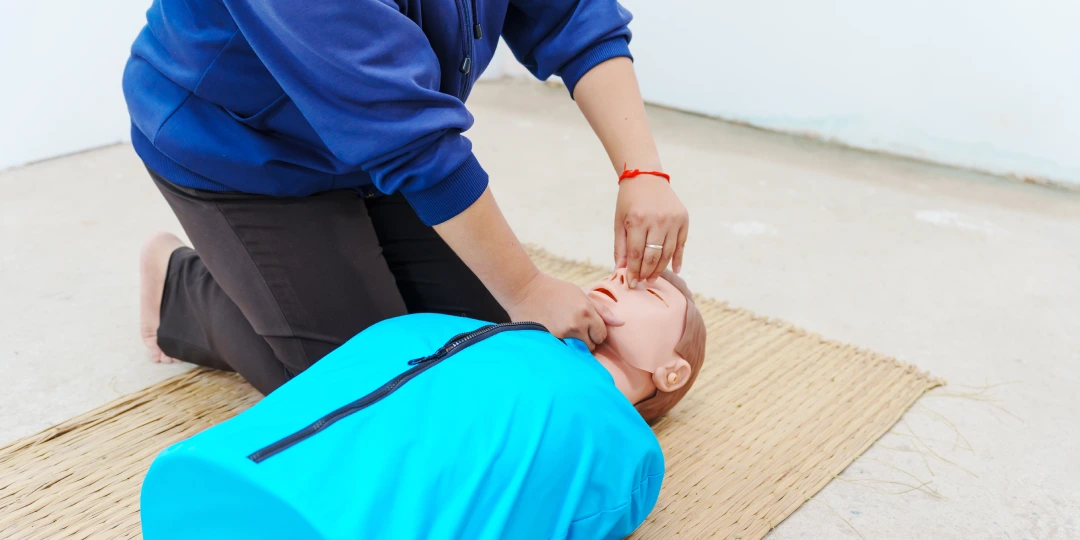
Tailoring First Aid for Your Industry
First Aid CPR training cannot be a one-size-fits-all service, especially in a city like Nashville where businesses vary widely in structure and risk profiles. Fortier Loss Control customizes First Aid CPR training for each industry, recognizing that a downtown restaurant faces different risks than a logistics warehouse on the outskirts of the city. By tailoring programs, Fortier ensures teams receive relevant, focused instruction on the emergencies they are most likely to face, making the training practical and immediately applicable.
In the hospitality industry, for example, the risk of choking, allergic reactions, and slip-and-fall incidents is high, requiring rapid intervention to prevent escalation. Fortier Loss Control’s First Aid CPR programs for these teams emphasize airway management, shock management, and the use of epinephrine auto-injectors alongside CPR practice. Conversely, in construction settings, the focus shifts toward trauma care, bleeding control, and cardiac arrest response in noisy.
Through its tailored approach, Fortier Loss Control also considers operational workflows, ensuring training can integrate seamlessly into daily routines. Employees learn how to identify hazards, report incidents, and provide care without causing further harm or risking their own safety. This industry-specific First Aid CPR training strengthens not only emergency readiness but also the broader safety culture within each business. Employees understand their role in prevention, incident management, and post-incident reporting, all while maintaining confidence in their ability to respond to emergencies effectively.
Hands-On Training with Real-World Scenarios
Watching videos and reading manuals rarely translate into effective action when emergencies arise. Fortier Loss Control’s First Aid CPR training prioritizes hands-on learning, immersing Nashville teams in realistic simulations that replicate the high-pressure environments they may face. Staff practice CPR on high-fidelity manikins that mimic human responses, learn how to control severe bleeding using tourniquets and pressure dressings, and navigate chaotic scenarios where quick, coordinated action is critical for survival.
These real-world scenarios are designed to build muscle memory, helping employees respond automatically when faced with emergencies. Practice drills are conducted in actual workspaces when possible, allowing teams to navigate around machinery, equipment, or restaurant layouts during training exercises. By replicating the conditions of real incidents, Fortier Loss Control ensures that staff develop familiarity with the physical and psychological dynamics of emergencies.
Beyond physical skills, Fortier’s hands-on approach strengthens teamwork during emergencies. Employees learn to communicate effectively, delegate tasks, and manage the scene while providing First Aid CPR, ensuring clear roles and coordinated responses. This collaborative approach builds trust within teams and establishes clear procedures that can be followed during real emergencies, making Fortier Loss Control’s training a critical investment for businesses seeking to foster practical, reliable safety readiness.
Tailoring First Aid for Your Industry
A warehouse team needs different training than an office staff, and Fortier Loss Control understands these nuances when delivering First Aid CPR programs in Nashville. Warehouse teams face risks such as equipment crush injuries, heavy lifting strains, and exposure to hazardous materials that require prompt and precise first aid response. In these environments, Fortier’s training emphasizes managing severe bleeding, responding to head and spine injuries, and performing effective CPR in confined spaces where quick action can prevent further harm while waiting for emergency services.
Conversely, in office environments, the risks shift toward medical emergencies like cardiac arrest, sudden fainting, or choking incidents during lunch breaks. Fortier Loss Control adjusts First Aid CPR programs for these teams by focusing on recognizing early signs of cardiac distress, performing high-quality chest compressions, and using AEDs effectively in an office setting. Employees learn to clear spaces, delegate roles, and manage the scene while communicating with 911, creating a seamless chain of care that increases survival chances.
For hospitality, healthcare, construction, and event management industries across Nashville, Fortier Loss Control continues to refine First Aid CPR content to reflect the specific emergencies these sectors face. Teams learn not just how to perform CPR but how to prevent accidents, manage multiple injuries during crowd situations, and coordinate with EMS effectively in their work environment. This practical customization makes First Aid CPR training a valuable investment rather than a checkbox, empowering employees to protect themselves and others while aligning safety initiatives with operational realities within their sectors.
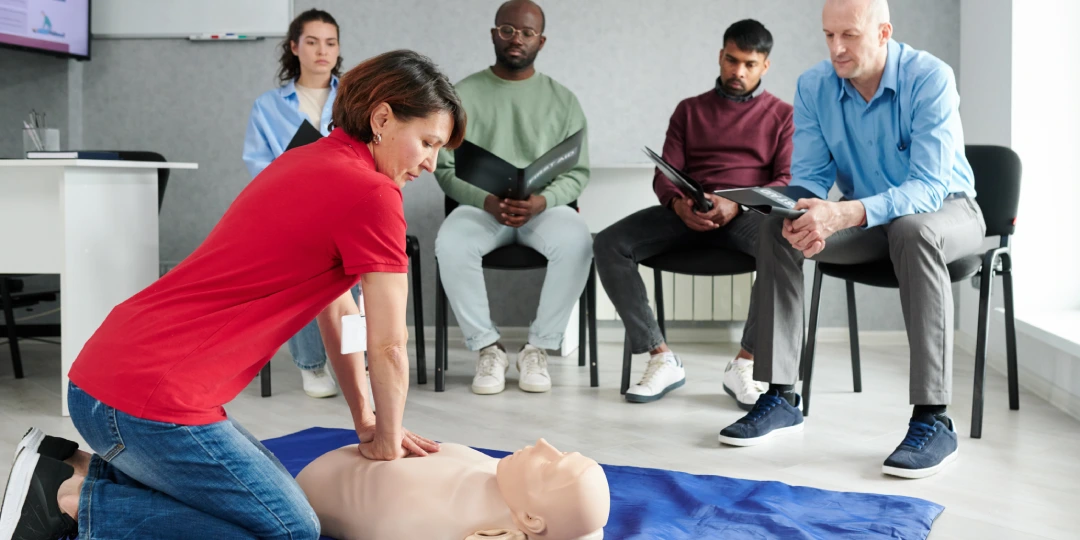
Hands-On Training with Real-World Scenarios
Passive learning doesn’t save lives. When emergencies strike, hesitation can be fatal, and theoretical knowledge alone often falls short under stress. Fortier Loss Control addresses this reality by delivering First Aid CPR training through immersive, hands-on experiences that replicate the urgency and complexity of real emergencies in Nashville workplaces. Using high-fidelity CPR manikins, realistic bleeding control simulations, and emergency drills, employees develop muscle memory, learning to react decisively rather than freeze when moments matter most.
In these hands-on sessions, employees practice CPR until the correct depth and rhythm become automatic, ensuring effective compressions during a cardiac arrest. They learn to handle severe bleeding with tourniquets and pressure dressings while coordinating with others in chaotic settings where communication and teamwork are vital. By simulating medical emergencies within actual workspaces—whether it’s a crowded warehouse aisle or a tight restaurant kitchen—Fortier Loss Control helps teams identify environmental obstacles and refine their emergency strategies, preparing them for real-world challenges.
Beyond the physical skills, this immersive First Aid CPR training fosters confidence and teamwork. Staff learn how to manage the scene, delegate roles effectively, and communicate with EMS clearly under pressure. These soft skills are just as critical as technical abilities, ensuring a structured, calm approach when emergencies occur. Fortier Loss Control’s commitment to practical, scenario-based training means employees walk away ready to save lives, armed with instincts and experience that theory-based classes simply cannot deliver.
Simplifying Certification and Renewals
Keeping certifications up to date can feel like navigating an administrative maze, draining valuable time and focus from Nashville businesses. Fortier Loss Control removes this burden by managing the entire First Aid CPR certification and renewal process, from scheduling to documentation, ensuring seamless compliance for teams without the stress of tracking expiration dates or coordinating staff availability. This structured approach allows businesses to maintain continuous readiness without disrupting operations or missing critical renewal deadlines.
Fortier Loss Control coordinates training times that align with operational schedules, offering early morning, late afternoon, or even weekend sessions to minimize workflow interruptions. Reminder systems and follow-up support keep managers informed of upcoming renewals while employees receive clear communication about what to expect, reducing confusion and last-minute cancellations. This streamlined certification process ensures teams remain compliant with OSHA and state requirements, safeguarding the business while building a well-prepared workforce capable of effective First Aid CPR intervention during emergencies.
Beyond compliance, maintaining active certifications signals to employees that their safety is a priority. It demonstrates the organization’s commitment to their well-being, fostering a sense of trust and confidence within the team. Fortier Loss Control turns certification and renewal from a tedious administrative task into a valuable safety investment, ensuring employees are not just certified on paper but equipped with current, effective First Aid CPR skills that can protect lives when seconds matter most.
Onsite vs. Offsite: Flexibility for Busy Teams
Every Nashville business operates on its own schedule, and First Aid CPR training shouldn’t disrupt operations. Fortier Loss Control understands the challenges managers face in aligning safety initiatives with day-to-day productivity, which is why it offers flexible onsite and offsite First Aid CPR training options for teams. Onsite sessions allow employees to train in their actual work environment, making it easier to simulate realistic emergency scenarios while minimizing time away from workstations. This approach reduces downtime while enhancing training relevance, as staff learn to navigate their physical space during emergencies.
For teams that prefer an offsite environment to limit workplace distractions or for those needing neutral ground for training, Fortier Loss Control provides convenient, well-equipped training locations across Nashville. These venues offer employees a focused setting where they can engage fully with First Aid CPR instruction without interruptions. Offsite sessions are ideal for businesses coordinating cross-departmental training or seeking a team-building environment while addressing critical safety skills.
This flexibility ensures that First Aid CPR training becomes accessible to all businesses, regardless of operational demands. Whether a hospitality team requires early morning sessions before opening hours or a construction crew prefers mid-day slots during weather holds, Fortier Loss Control accommodates these needs, making lifesaving training practical, convenient, and aligned with Nashville’s fast-paced business environment.
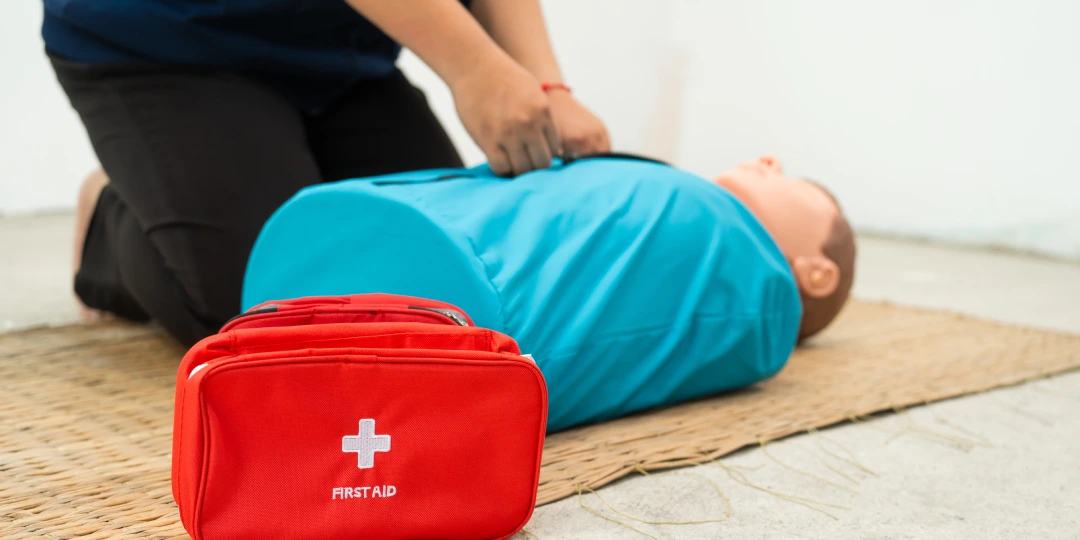
Frequently Asked Questions
1. What makes Fortier Loss Control’s First Aid and CPR training different?
Fortier Loss Control offers First Aid and CPR training tailored to your industry’s risks, using hands-on, realistic scenarios rather than generic slideshows. Employees practice CPR, bleeding control, and emergency management in settings that reflect their actual work environment, building confidence to act under pressure. Fortier also manages scheduling and renewals, keeping your team compliant without workflow disruptions. This approach turns First Aid and CPR into a practical safety tool, preparing your Nashville team to respond effectively during emergencies and protect lives while aligning with OSHA and regulatory requirements.
2. How often should my team renew First Aid and CPR certifications?
Fortier Loss Control recommends renewing First Aid and CPR certifications every two years, following OSHA and American Heart Association guidelines. For high-risk industries, annual refreshers can help teams maintain readiness and confidence under pressure. Fortier manages reminders and renewals, ensuring your team remains compliant without stress or disruption to operations. Regular renewal keeps employees’ skills sharp and updated with current best practices, enabling quick, effective responses during emergencies. This commitment to ongoing training helps protect your team and customers while strengthening workplace safety across your Nashville business.
3. Does Fortier Loss Control provide onsite First Aid and CPR training?
Yes, Fortier Loss Control offers onsite First Aid and CPR training for Nashville businesses, allowing employees to learn in their actual work environment. This approach helps teams practice emergency response in real-world conditions while reducing downtime. Flexible scheduling options, including mornings, afternoons, and weekends, ensure training fits your operational needs. For teams preferring offsite training, Fortier provides accessible, equipped venues across Nashville. This flexibility makes lifesaving First Aid and CPR training practical and achievable for your business, ensuring your team is ready to respond confidently when emergencies happen.
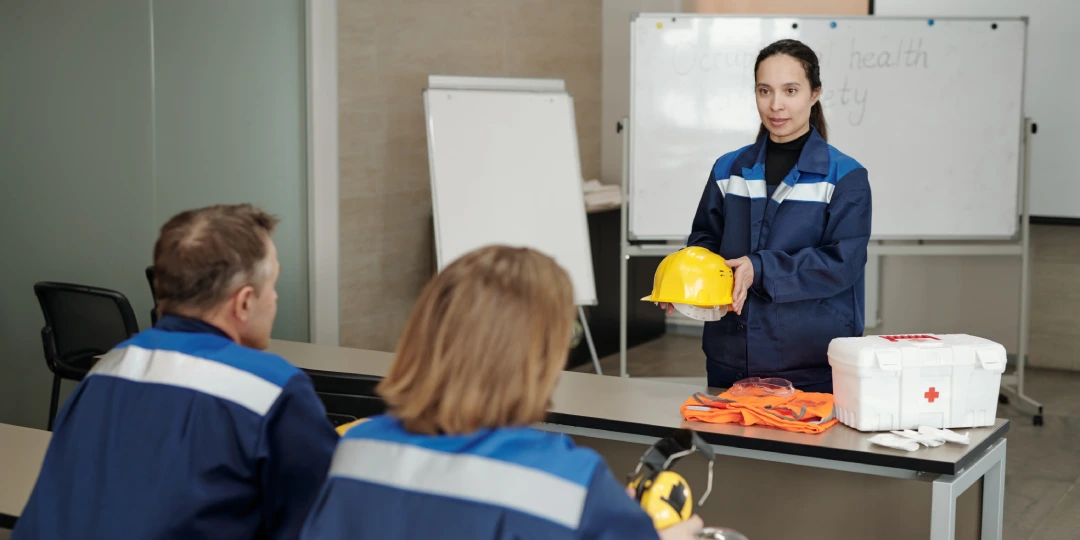
Conclusion: Building a Safer Nashville, One Team at a Time
First Aid and CPR training is a commitment to every employee’s well-being, and Fortier Loss Control makes this commitment achievable for businesses across Nashville. By offering tailored, hands-on programs that address industry-specific risks, providing flexible scheduling, and integrating safety training into workplace culture, Fortier transforms compliance obligations into real, lifesaving readiness.
Safety is not just about reducing liability; it’s about protecting people and creating a work environment where employees feel valued and secure. Through consistent First Aid CPR training, Fortier Loss Control helps businesses build a workforce that is confident, prepared, and capable of preventing tragedies before emergency services arrive. Every training session delivered by Fortier Loss Control brings Nashville closer to a safer future. By investing in effective First Aid CPR programs, businesses not only meet regulatory standards but also take meaningful action to protect the lives of their employees and customers.


